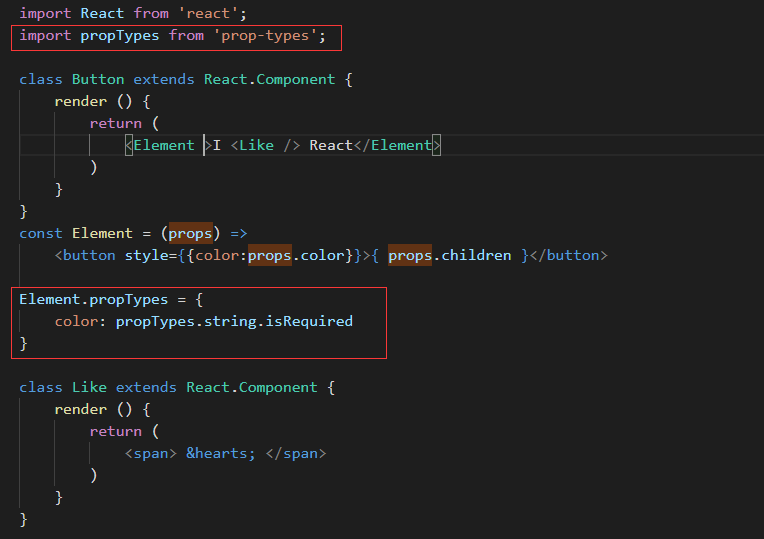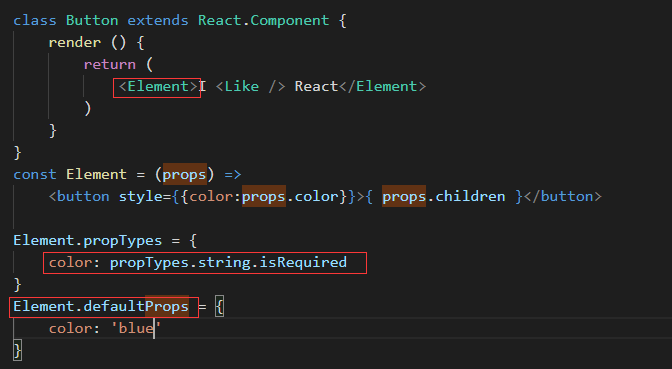React组件proptypes, ref
一、使用props.children访问嵌套数据
import React from 'react';
class Button extends React.Component {
render () {
return (
<Element>I <Like /> React</Element>
)
}
}
const Element = (props) =>
<button>{ props.children }</button>
class Like extends React.Component {
render () {
return (
<span> ♥ </span>
)
}
}
export default Button;
通过props.children不仅拿到了自身的文本,而且拿到了<Like>中的内容。
二、自定义propTypes验证子组件props
import React from 'react';
class Check extends React.Component {
render () {
return (
<Title />
)
}
}
const Title = (props) =>
<h2>the Title: { props.title }</h2>
Title.propTypes = {
title(props, propName,component) {
// 验证是否为空
if (!(propName in props)) {
return new Error(`missing ${propName}`)
}
// 验证属性值的长度
if (props[propName].length < 6) {
return new Error(`the ${propName} is too short.`)
}
}
}
export default Check

对代码做如下修改:

即可消除报错信息。
2. 类型校验

上述代码运行后会报错

代码修改:

报错消失。
如果是类声明组件,使用下面的代码进行验证:
class Element extends React.Component { const propTypes = { color: PropTypes.String.isRequired } //........ }
四、默认props值 defaultProps

上述代码不会产生报错,因为设置了defaultProps.
五、ref获取特定组件的引用
下面定义了两个span,想要分别对应两个不同的<input />标签中的内容。
import React from 'react';
import ReactDOM from 'react-dom'
class Twins extends React.Component {
constructor () {
super();
this.state = {
a: '',
b: ''
}
}
update (e) {
this.setState({
a: ReactDOM.findDOMNode(this.a).value,
b: ReactDOM.findDOMNode(this.b).value
})
}
render () {
return (
<div>
<Input
ref={component => this.a = component}
update={this.update.bind(this)} />
<span>{this.state.a}</span>
<hr></hr>
<Input
ref={component => this.b = component}
update={this.update.bind(this)} />
<span>{this.state.b}</span>
</div>
)
}
}
class Input extends React.Component {
render () {
return (
<input type='text' onChange={this.props.update} />
)
}
}
export default Twins
注意:这里Input一定要以class形式定义。
方法二:constructor中声明容器对象
this.myRef = React.createRef();
将其赋给特定对象。由于react自身的机制,接受ref的组件会把自己添加到容器中。
<AddForm ref={this.myRef} />
通过this.myRef.current即可获取特定子组件中的属性。




 浙公网安备 33010602011771号
浙公网安备 33010602011771号